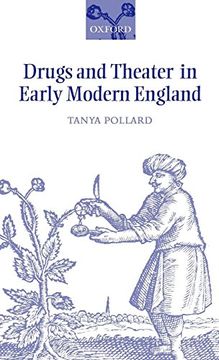Synopsis "Drugs and Theater in Early Modern England (in English)"
Drugs and Theater in Early Modern England asks why Shakespeare and his contemporary playwrights were so preoccupied with drugs and poisons and, at a deeper level, why both critics and supporters of the theater, as well as playwrights themselves, so frequently adopted a chemical vocabulary to describe the effects of the theater on audiences. Drawing upon original medical and literary research, Pollard shows that the potency of the link between drugs and plays in the period demonstrates a model of drama radically different than our own, a model in which plays exert a powerful impact on spectators' bodies as well as minds. Early modern physiology held that the imagination and emotions were part of the body, and exerted a material impact on it, yet scholars of medicine and drama alike have not recognised the consequences of this idea. Plays, which alter our emotions and thought, simultaneously change us physically. This book argues that the power of the theater in early modern England, as well as the striking hostility to it, stems from the widely held contemporary idea that drama acted upon the body as well as the mind. In yoking together pharmacy and theater, this book offers a new model for understanding the relationship between texts and bodies. Just as bodies are constituted in part by the imaginative fantasies they consume, the theater's success (and notoriety) depends on its power over spectators' bodies. Drugs, which conflate concerns about unreliable appearances and material danger, evoked fascination and fear in this period by identifying a convergence point between the imagination and the body, the literary and the scientific, the magical and the rational. This book explores that same convergence point, and uses it to show the surprising physiological powers attributed to language, and especially to the embodied language of the theater.

